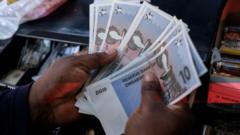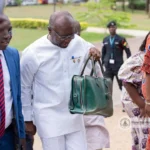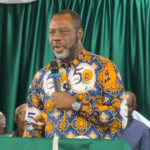Zimbabwe’s central bank has devalued its gold-backed currency by over 40% against the US dollar, indicating that the last ditch effort to stabilise the country’s volatile economy, is in trouble.
The Reserve Bank of Zimbabwe (RBZ) made the decision to slash the local exchange rate to 24 Zig to $1 (£0.75) on Friday.
This slump is due to an increase in demand for the US dollar, which is also legal tender. It comes after warnings from by large retailers of store closures if the rate remained fixed at the previous level.
The Zig, which stands for Zimbabwe Gold, was launched over six months ago and is the country’s sixth currency in 25 years.
According to the Reuters new agency, RBZ said in a statement that its Monetary Policy Committee made the move to allow greater exchange rate flexibility.
RBZ explained that the measures would address “emerging exchange rate risks, anchor the inflation expectations and stabilise prices in the near to short term”.
On paper the Zig had largely maintained it value since its launch, but on the black market, where most businesses secure the US dollars, it has more than halved in value.
The government has struggled to wean the population off the US dollar, as there has been no stable alternative for citizens.
Zimbabweans have a historic mistrust of the central bank, dating back to 2008, when it was printing 10tn Zimbabwe dollar notes while inflation had run out of control.
Go to BBCAfrica.com, external for more news from the African continent.
Follow us on Twitter @BBCAfrica, external, on Facebook at BBC Africa, external or on Instagram at bbcafrica, external
















